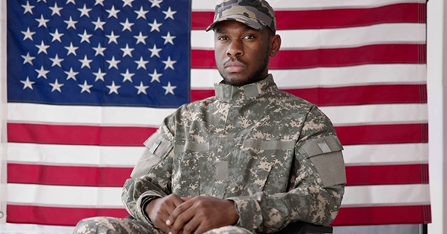Have You Received A Denial From Veteran Affairs For Your Diabetes Claim?
Diabetes is a condition that is all too common amongst veterans. The most affected veterans are those who served during the Vietnam War due to their exposure to Agent Orange. While they are the largest percentage who are now approaching their wisdom years, diabetes seems to be keen on wrecking their lives. Luckily, VA disability benefits are available for veterans with diabetes.
In general, diabetes is identified as a metabolic condition that impairs the body’s capability to appropriately regulate blood sugar. It mainly manifests in two forms:
- Type 1 Diabetes: This form is caused by an autoimmune reaction that makes the pancreas produce very little or no insulin. This is very common amongst children and teenagers. About 5-10% of people diagnosed with diabetes have this type.
- Type 2 Diabetes: Also commonly called adult-onset diabetes, this develops over a prolonged period and is induced by lifestyle factors and genetics. The body produces insulin but fails to effectively use it. About 90-95% of individuals diagnosed with diabetes have this type.
VA disability benefits are generally unavailable for type 1 diabetes, although there are certain limited exceptions. Type 2 diabetes, a presumptive physical condition for veterans exposed to Agent Orange, is most commonly service-connected.

Contact Us Today
We Will Fight For Your Benefits
We guarantee 100% privacy. Your information will not be shared.
Appealing Your Denied Diabetes Claim
If you developed diabetes, specifically type 2 diabetes, during or after your service in the US military, you could be eligible for VA disability benefits. However, to get the VA benefits for diabetes mellitus type 2, you must be able to prove that there was a nexus between the condition and an in-service illness, event, or injury.
It can be challenging to qualify for VA disability diabetes benefits, even when your claim is legitimate. Errors in the application process or omission of critical evidence could leave you amongst those whose VA disability claims have been denied. However, you can appeal your diabetes claim denial with the help of a veteran benefits lawyer and receive your share of VA benefits.
How Does The VA Rate Diabetes?
As with other conditions, the VA rates diabetes based on the degree to which it affects the average loss in earning capacity for a veteran. Ratings start from 0% to 100% with increments of 10%. The higher your percentage rating, the higher the amount of compensation you qualify for. This is why it is important for your claim to highlight all the symptoms you experience accurately.
The VA rating for diabetes mellitus type 2 features “and” conditions but no “or” conditions. For example, to receive a 20% rating, you must be on insulin, unable to undertake various activities, and on a restricted diet.
At the bottom of the rating schedule, diabetes is considered 10% disabling if it is manageable with only a proper diet. Diabetes is rated 100% disabling if you suffer from severe symptoms, including multiple daily insulin injections and either weekly medical care or frequent hospitalizations for diabetic complications.

Common Causes Of Service-Related Diabetes
One of the most common reasons to obtain a service connection for diabetes is exposure to Agent Orange. Other in-service exposures can also lead to the disease.
According to the VA’s Office of Research and Development, air pollution leads to an increased risk of diabetes. The agency conducted a study using the records of 1.7 million veterans and concluded that outdoor air pollution, even at levels generally considered harmless, can cause diabetes.
Military personnel frequently encounter airborne microscopic particles, including dirt, dust, smoke, liquid droplets, and soot. The VA reports that such particles can enter the lungs and bloodstream, triggering conditions such as kidney disease, cancer, stroke, heart disease, and diabetes. These particles can inhibit proper insulin production and trigger inflammation, making the body unable to convert blood glucose into energy.
How Is Service Connection Established For Diabetes?
It can be difficult to prove how time spent on active duty contributed to a diabetes diagnosis. However, the connection can be implied in several ways. For example, veterans who served as “boots on the ground” during the Vietnam War may have developed diabetes due to exposure to Agent Orange. This also applies to those who served in Thailand and other related regions, including Navy veterans eligible for Blue Water status.
Agent Orange, sometimes called a tactical herbicide by the VA, is highly toxic and has debilitating effects. Even indirect exposure can trigger severe health problems, often manifesting years or decades later.
The VA recognizes Agent Orange exposure as a factor that could have led to diabetes. Veterans who served in Vietnam or other parts of Southeast Asia from 1962 to 1975 may automatically qualify for VA benefits. Verification of service location and medical records showing a diabetes diagnosis can establish service connection.
For other veterans, diabetes may result from years of active duty. A VA-accredited attorney can help prove entitlement to service connection and secure compensation for diabetes. Contact our team to explore options for appealing your denial or advancing your veteran disability claim.
Frequently Asked Questions
Yes. Type 2 diabetes (adult-onset diabetes) is a disability that allows veterans to receive VA benefits if they can prove the diabetes is service-related.
VA compensation for diabetes depends on the VA rating based on the severity of symptoms. Compensation changes annually and generally increases over time.
In some cases, such as Agent Orange exposure, service connection for diabetes is presumed. Otherwise, veterans must show that type 2 diabetes is directly related to their service or another service-connected condition.
Contact A VA Disability Lawyer Today
A Veteran Disability Lawyer assists throughout the confusing and frustrating appeals process if you have received a denial of benefits for service-connected diabetes. Generally, one denial is required before a lawyer can assist, but once involved, they can quickly determine what is needed to prove entitlement.
If your VA disability claim for diabetes has been denied, be sure to contact the VA Accredited Attorneys at VetLaw to secure the entitlement you deserve.

